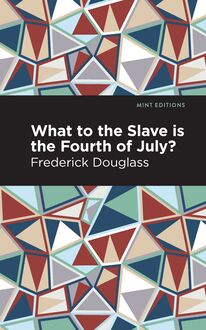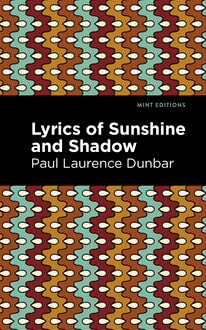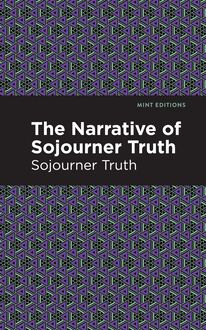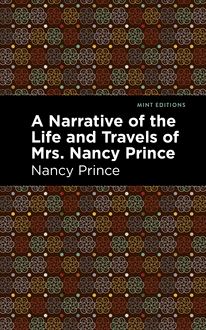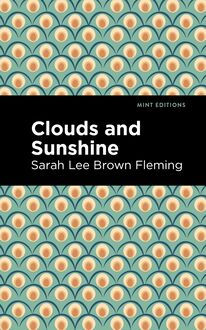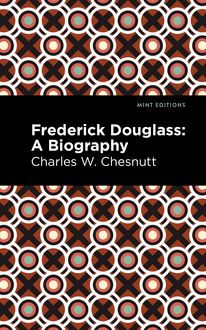-
 Univers
Univers
-
 Ebooks
Ebooks
-
 Livres audio
Livres audio
-
 Presse
Presse
-
 Podcasts
Podcasts
-
 BD
BD
-
 Documents
Documents
-
- Cours
- Révisions
- Ressources pédagogiques
- Sciences de l’éducation
- Manuels scolaires
- Langues
- Travaux de classe
- Annales de BEP
- Etudes supérieures
- Maternelle et primaire
- Fiches de lecture
- Orientation scolaire
- Méthodologie
- Corrigés de devoir
- Annales d’examens et concours
- Annales du bac
- Annales du brevet
- Rapports de stage
La lecture à portée de main
Vous pourrez modifier la taille du texte de cet ouvrage
Découvre YouScribe en t'inscrivant gratuitement
Je m'inscrisDécouvre YouScribe en t'inscrivant gratuitement
Je m'inscrisEn savoir plus
Vous pourrez modifier la taille du texte de cet ouvrage
En savoir plus

Description
Our Nig; or Sketches from the Life of a Free Black (1859) is an autobiographical novel by Harriet E. Wilson. Published anonymously, Our Nig; or Sketches from the Life of a Free Black is considered the first novel by an African American to be published in North America, having been rediscovered by Professor Henry Louis Gates, Jr. in 1981. Based on Wilson’s own experience as a free black forced into indentured servitude in New Hampshire, the novel critiques the racism and indifference of white Northerners and abolitionists who claim to oppose slavery while upholding prejudice and injustice against African Americans.
Abandoned by her white mother following the death of her father, a free black man, Frado is raised as an indentured servant on the Bellmont farm. The Bellmonts, a middle-class family, initially believe Frado has been dropped off by her mother for the day, but when Mag fails to appear for several days, they realize the girl has been left in their care. Unwilling to raise her as one of their own, the Bellmonts immediately put her to work in their kitchen. Although she is treated kindly by their son Jack, Frado is frequently beaten by Mrs. Bellmont, who resents having the young mixed-race girl in her house and sees her work as an intrusion on her own housekeeping duties. Suffering under Mrs. Bellmont’s abuses, Frado longs to escape.
With a beautifully designed cover and professionally typeset manuscript, this edition of Harriet E. Wilson’s Our Nig; or Sketches from the Life of a Free Black is a classic of African American literature reimagined for modern readers.
Sujets
Informations
| Publié par | Mint Editions |
| Date de parution | 23 février 2021 |
| Nombre de lectures | 0 |
| EAN13 | 9781513268200 |
| Langue | English |
| Poids de l'ouvrage | 3 Mo |
Informations légales : prix de location à la page 0,0300€. Cette information est donnée uniquement à titre indicatif conformément à la législation en vigueur.
Extrait
Our Nig; Or, Sketches from the Life of a Free Black
Harriet E. Wilson
Our Nig; Or, Sketches from the Life of a Free Black was first published in 1859.
This edition published by Mint Editions 2021.
ISBN 9781513277370 | E-ISBN 9781513268200
Published by Mint Editions®
minteditionbooks.com
Publishing Director: Jennifer Newens
Design & Production: Rachel Lopez Metzger
Project Manager: Micaela Clark
Typesetting: Westchester Publishing Services
C ONTENTS PREFACE I. M AG S MITH , M Y M OTHER II. M Y F ATHER ’ S D EATH III. A N EW H OME FOR M E IV. A F RIEND FOR N IG V. D EPARTURES VI. V ARIETIES VII. S PIRITUAL C ONDITION OF N IG VIII. V ISITOR AND D EPARTURE IX. D EATH X. P ERPLEXITIES .—A NOTHER D EATH XI. M ARRIAGE A GAIN XII. T HE W INDING U P OF THE M ATTER A PPENDIX
P REFACE
I n offering to the public the following pages, the writer confesses her inability to minister to the refined and cultivated, the pleasure supplied by abler pens. It is not for such these crude narrations appear. Deserted by kindred, disabled by failing health, I am forced to some experiment which shall aid me in maintaining myself and child without extinguishing this feeble life. I would not from these motives even palliate slavery at the South, by disclosures of its appurtenances North. My mistress was wholly imbued with S OUTHERN principles. I do not pretend to divulge every transaction in my own life, which the unprejudiced would declare unfavorable in comparison with treatment of legal bondmen; I have purposely omitted what would most provoke shame in our good anti-slavery friends at home.
My humble position and frank confession of errors will, I hope, shield me from severe criticism. Indeed, defects are so apparent it requires no skilful hand to expose them.
I sincerely appeal to my colored brethren universally for patronage, hoping they will not condemn this attempt of their sister to be erudite, but rally around me a faithful band of supporters and defenders.
H. E. W.
I
M AG S MITH , M Y M OTHER
Oh, Grief beyond all other griefs, when fate
First leaves the young heart lone and desolate
In the wide world, without that only tie
For which it loved to live or feared to die;
Lorn as the hung-up lute, that ne’er hath spoken
Since the sad day its master-chord was broken!
— M OORE
L ONELY M AG S MITH ! See her as she walks with downcast eyes and heavy heart. It was not always thus. She H AD a loving, trusting heart. Early deprived of parental guardianship, far removed from relatives, she was left to guide her tiny boat over life’s surges alone and inexperienced. As she merged into womanhood, unprotected, uncherished, uncared for, there fell on her ear the music of love, awakening an intensity of emotion long dormant. It whispered of an elevation before unaspired to; of ease and plenty her simple heart had never dreamed of as hers. She knew the voice of her charmer, so ravishing, sounded far above her. It seemed like an angel’s, alluring her upward and onward. She thought she could ascend to him and become an equal. She surrendered to him a priceless gem, which he proudly garnered as a trophy, with those of other victims, and left her to her fate. The world seemed full of hateful deceivers and crushing arrogance. Conscious that the great bond of union to her former companions was severed, that the disdain of others would be insupportable, she determined to leave the few friends she possessed, and seek an asylum among strangers. Her offspring came unwelcomed, and before its nativity numbered weeks, it passed from earth, ascending to a purer and better life.
“God be thanked,” exclaimed Mag, as she saw its breathing cease; “no one can taunt H ER with my ruin.”
Blessed release! may we all respond. How many pure, innocent children not only inherit a wicked heart of their own, claiming life-long scrutiny and restraint, but are heirs also of parental disgrace and calumny, from which only long years of patient endurance in paths of rectitude can disencumber them.
Mag’s new home was soon contaminated by the publicity of her fall; she had a feeling of degradation oppressing her; but she resolved to be circumspect, and try to regain in a measure what she had lost. Then some foul tongue would jest of her shame, and averted looks and cold greetings disheartened her. She saw she could not bury in forgetfulness her misdeed, so she resolved to leave her home and seek another in the place she at first fled from.
Alas, how fearful are we to be first in extending a helping hand to those who stagger in the mires of infamy; to speak the first words of hope and warning to those emerging into the sunlight of morality! Who can tell what numbers, advancing just far enough to hear a cold welcome and join in the reserved converse of professed reformers, disappointed, disheartened, have chosen to dwell in unclean places, rather than encounter these “holier-than-thou” of the great brotherhood of man!
Such was Mag’s experience; and disdaining to ask favor or friendship from a sneering world, she resolved to shut herself up in a hovel she had often passed in better days, and which she knew to be untenanted. She vowed to ask no favors of familiar faces; to die neglected and forgotten before she would be dependent on any. Removed from the village, she was seldom seen except as upon your introduction, gentle reader, with downcast visage, returning her work to her employer, and thus providing herself with the means of subsistence. In two years many hands craved the same avocation; foreigners who cheapened toil and clamored for a livelihood, competed with her, and she could not thus sustain herself. She was now above no drudgery. Occasionally old acquaintances called to be favored with help of some kind, which she was glad to bestow for the sake of the money it would bring her; but the association with them was such a painful reminder of by-gones, she returned to her hut morose and revengeful, refusing all offers of a better home than she possessed. Thus she lived for years, hugging her wrongs, but making no effort to escape. She had never known plenty, scarcely competency; but the present was beyond comparison with those innocent years when the coronet of virtue was hers.
Every year her melancholy increased, her means diminished. At last no one seemed to notice her, save a kind-hearted African, who often called to inquire after her health and to see if she needed any fuel, he having the responsibility of furnishing that article, and she in return mending or making garments.
“How much you earn dis week, Mag?” asked he one Saturday evening.
“Little enough, Jim. Two or three days without any dinner. I washed for the Reeds, and did a small job for Mrs. Bellmont; that’s all. I shall starve soon, unless I can get more to do. Folks seem as afraid to come here as if they expected to get some awful disease. I don’t believe there is a person in the world but would be glad to have me dead and out of the way.”
“No, no, Mag! don’t talk so. You shan’t starve so long as I have barrels to hoop. Peter Greene boards me cheap. I’ll help you, if nobody else will.”
A tear stood in Mag’s faded eye. “I’m glad,” she said, with a softer tone than before, “if there is O NE who isn’t glad to see me suffer. I b’lieve all Singleton wants to see me punished, and feel as if they could tell when I’ve been punished long enough. It’s a long day ahead they’ll set it, I reckon.”
After the usual supply of fuel was prepared, Jim returned home. Full of pity for Mag, he set about devising measures for her relief. “By golly!” said he to himself one day—for he had become so absorbed in Mag’s interest that he had fallen into a habit of musing aloud—“By golly! I wish she’d M ARRY me.”
“Who?” shouted Pete Greene, suddenly starting from an unobserved corner of the rude shop.
“Where you come from, you sly nigger!” exclaimed Jim.
“Come, tell me, who is’t?” said Pete; “Mag Smith, you want to marry?”
“Git out, Pete! and when you come in dis shop again, let a nigger know it. Don’t steal in like a thief.”
Pity and love know little severance. One attends the other. Jim acknowledged the presence of the former, and his efforts in Mag’s behalf told also of a finer principle.
This sudden expedient which he had unintentionally disclosed, roused his thinking and inventive powers to study upon the best method of introducing the subject to Mag.
He belted his barrels, with many a scheme revolving in his mind, none of which quite satisfied him, or seemed, on the whole, expedient. He thought of the pleasing contrast between her fair face and his own dark skin; the smooth, straight hair, which he had once, in expression of pity, kindly stroked on her now wrinkled but once fair brow. There was a tempest gathering in his heart, and at last, to ease his pent-up passion, he exclaimed aloud, “By golly!” Recollecting his former exposure, he glanced around to see if Pete was in hearing again. Satisfied on this point, he continued: “She’d be as much of a prize to me as she’d fall short of coming up to the mark with white folks. I don’t care for past things. I’ve done things ’fore now I’s ’shamed of. She’s good enough for me, any how.”
One more glance about the premises to be sure Pete was away.
The next Saturday night brought Jim to the hovel again. The cold was fast coming to tarry its apportioned time. Mag was nearly despairing of meeting its rigor.
“How’s the wood, Mag?” asked Jim.
“All gone; and no more to cut, any how,” was the reply.
“Too bad!” Jim said. His truthful reply would have been, I’m glad.
“Anything to eat in the house?” continued he.
“No,” replied Mag.
“Too bad!” again, orally, with the same I NWARD gratulation as before.
“Well, Mag,” said Jim, after a short pause, “you’s down low enough. I don’t see but I’ve got to take care of ye. ’Sposin’ we marry!”
Mag raised her eyes, full of amazement, and uttered a sonorous “What?”
Jim felt abashed for a momen
-
 Univers
Univers
-
 Ebooks
Ebooks
-
 Livres audio
Livres audio
-
 Presse
Presse
-
 Podcasts
Podcasts
-
 BD
BD
-
 Documents
Documents
-
Jeunesse
-
Littérature
-
Ressources professionnelles
-
Santé et bien-être
-
Savoirs
-
Education
-
Loisirs et hobbies
-
Art, musique et cinéma
-
Actualité et débat de société
-
Jeunesse
-
Littérature
-
Ressources professionnelles
-
Santé et bien-être
-
Savoirs
-
Education
-
Loisirs et hobbies
-
Art, musique et cinéma
-
Actualité et débat de société
-
Actualités
-
Lifestyle
-
Presse jeunesse
-
Presse professionnelle
-
Pratique
-
Presse sportive
-
Presse internationale
-
Culture & Médias
-
Action et Aventures
-
Science-fiction et Fantasy
-
Société
-
Jeunesse
-
Littérature
-
Ressources professionnelles
-
Santé et bien-être
-
Savoirs
-
Education
-
Loisirs et hobbies
-
Art, musique et cinéma
-
Actualité et débat de société
- Cours
- Révisions
- Ressources pédagogiques
- Sciences de l’éducation
- Manuels scolaires
- Langues
- Travaux de classe
- Annales de BEP
- Etudes supérieures
- Maternelle et primaire
- Fiches de lecture
- Orientation scolaire
- Méthodologie
- Corrigés de devoir
- Annales d’examens et concours
- Annales du bac
- Annales du brevet
- Rapports de stage


